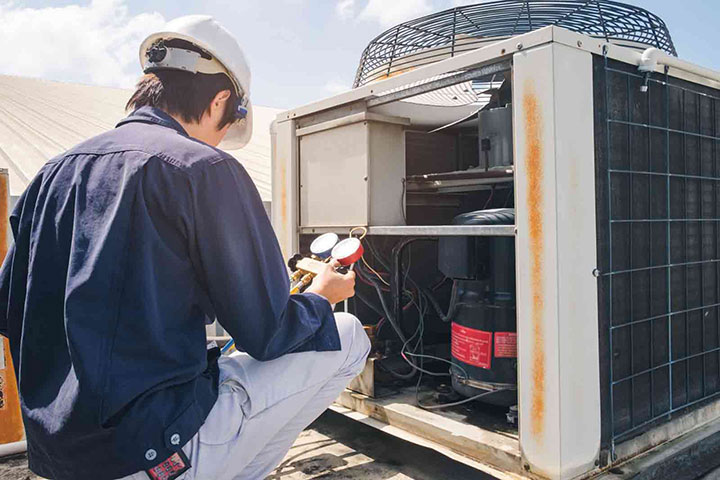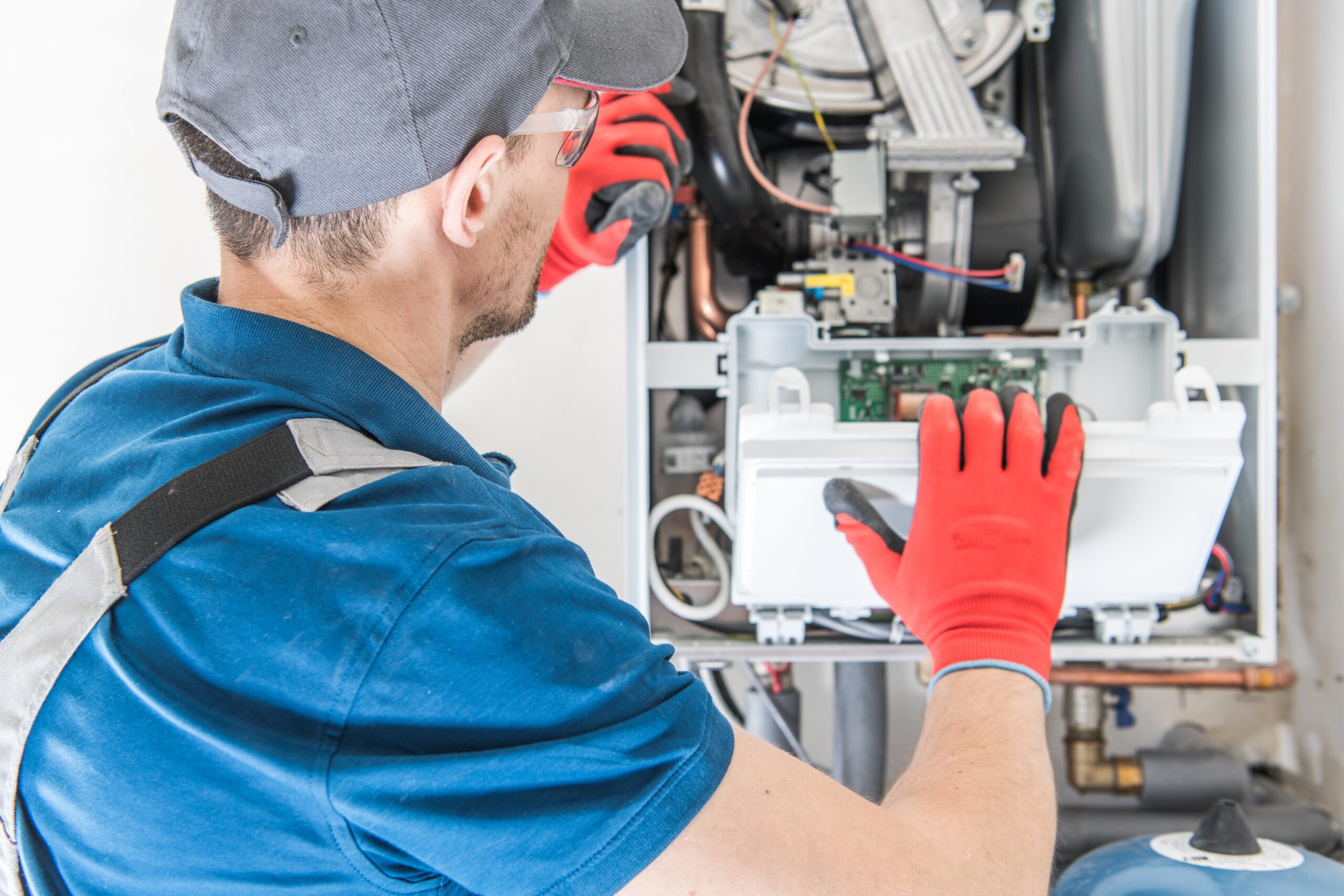Planning Ahead Before Your heat pump replacement ooltewah tn Starts
Planning Ahead Before Your heat pump replacement ooltewah tn Starts
Blog Article
Choosing In Between a Heat Pump and Heating System: Trick Considerations for Your HVAC Requirements
When assessing home heating options for heating and cooling needs, the choice in between a warm pump and a heating system can be complex. Each system supplies distinct advantages customized to specific climates and energy effectiveness goals. Comprehending these differences is crucial for making an enlightened choice. Key aspects such as installation expenses and ecological influence better make complex the option process. Which option absolutely aligns with one's comfort and sustainability preferences? The following sections will certainly discover these factors to consider thoroughly.
Recognizing Warm Pumps: Just How They Work and Their Benefits
While numerous property owners consider different heating alternatives, understanding just how heatpump function and their benefits can greatly influence their choice. Heatpump run by transferring warmth rather than generating it. In the winter season, they extract warm from the outside air or ground and move it inside your home, while in the summer season, they reverse this procedure, cooling down the home by removing warmth outside. This dual capability makes them flexible for year-round climate control.One of the key benefits of warm pumps is their energy effectiveness. They utilize significantly much less electrical energy contrasted to typical heater, possibly causing lower energy bills (furnace replacement). Furthermore, heatpump have a smaller carbon impact, making them an eco pleasant choice. They also require much less maintenance than traditional systems, contributing to long-term price financial savings. Overall, understanding the mechanics and advantages of warmth pumps can help property owners make educated choices regarding their heating and cooling down demands
Exploring Heaters: Types, Procedure, and Advantages
Heating systems come in various kinds, consisting of gas, electrical, and oil versions, each with distinctive functional mechanisms. Comprehending these differences is vital, as they impact efficiency and home heating efficiency. In addition, heaters offer numerous advantages, such as consistent heat output and dependability in colder environments.
Sorts of Heaters
Furnace can vary substantially in style and operation, with furnaces being a prominent choice among home owners. There are numerous types of furnaces, each making use of different gas sources and modern technologies. Gas furnaces are common, leveraging natural gas to create heat effectively. Electric heaters, on the other hand, utilize electric resistance to create warmth, often favored for their straightforward installation. Oil furnaces, while less common, are efficient in areas with restricted gas gain access to (furnace replacement). Furthermore, condensing heating systems take full advantage of power performance by catching and reusing exhaust gases. Each kind runs with a system of warm exchangers and ductwork to distribute cozy air throughout a home. Recognizing the differences between these furnace types is important for informed cooling and heating decisions
Benefits of Furnaces
For home owners seeking reputable heat throughout cool months, the benefits of furnaces are substantial. Heaters offer constant home heating, making sure also temperature levels throughout the home. They are specifically efficient in severe chilly, commonly surpassing warmth pumps in cold problems. Numerous kinds, consisting of gas, electric, and oil heating systems, provide versatility to fulfill varied demands and preferences.Furnaces also often tend to have reduced first setup prices compared to warm pumps, making them an extra easily accessible alternative for several. Their durable layout contributes to a longer life expectancy, with several units lasting over 15 years with correct upkeep. Furthermore, modern-day heating systems are often geared up with advanced technology for enhanced performance, which can lead to reduced energy expenses. On the whole, heaters remain a reputable option for effective home heating.

Power Efficiency: Contrasting Warm Pumps and Furnaces
When comparing power effectiveness between warmth pumps and heating systems, the Seasonal Energy Performance Ratio (SEER) plays a vital role in figuring out efficiency. Furthermore, a functional expense evaluation exposes the long-term economic ramifications of each system. Understanding these elements can direct house owners in making educated decisions about their heating options.
Seasonal Energy Efficiency Proportion
Power efficiency plays an essential duty in the decision-making procedure between warm pumps and heaters, particularly when thinking about the Seasonal Energy Performance Ratio (SEER) This statistics steps the cooling performance of warmth pumps over an entire air conditioning period, providing a standardized means to examine performance. Higher SEER ratings indicate higher power efficiency, translating to lower energy usage and minimized energy costs. On the other hand, heating systems are usually evaluated utilizing the Annual Gas Application Effectiveness (AFUE) ranking, which shows heating performance. When comparing these two systems, property owners need to prioritize SEER ratings for heat pumps, as they directly effect general energy financial savings and environmental sustainability. A detailed understanding of SEER can notably affect the long-lasting fulfillment and cost-effectiveness of the picked cooling and heating option.
Operational Price Evaluation
Comprehending the functional costs connected with warm pumps and heaters is important for house owners examining their useful content options. Warm pumps usually provide greater energy efficiency, transforming electrical energy right into heat with very little waste. This leads to lower month-to-month energy bills, especially in moderate environments. On the other hand, traditional heaters, especially gas designs, might have lower in advance expenses however can sustain greater operational costs with time due to sustain prices and efficiency ratings.Moreover, warm pumps can work as both home heating and cooling systems, possibly lowering the need for different HVAC systems. While first investments for warmth pumps might be greater, their long-term savings in energy effectiveness can make them a more economical selection for several families. Mindful evaluation of neighborhood energy prices is necessary to determine the finest option.
Installation Expenses: What to Anticipate for each and every Furnace
Installment expenses for heater can differ substantially between warm pumps and heating systems, influencing house owners' decisions. Heat pumps generally have higher in advance installment costs, generally varying from $3,500 to $8,000, depending on the unit size and intricacy of setup. This includes the outside device, indoor handling system, and essential ductwork adjustments. Alternatively, heaters often tend to have reduced first expenses, averaging between $2,500 and $6,000, which can be appealing for budget-conscious property owners. Installation expenditures can boost if considerable ductwork is required.Moreover, the selection of gas kind for heaters-- natural gas, lp, or electric-- can likewise impact setup costs. While warmth pumps use energy effectiveness, their preliminary investment may hinder some purchasers. Eventually, reviewing installment costs together with long-lasting financial savings and performance will help house owners in making notified decisions concerning their heating unit.
Environment Considerations: Which System Carries Out Much Better in Your Area
How do environment problems influence the efficiency of furnace? The efficiency of warm pumps and furnaces can vary substantially depending upon the local environment. In moderate climates, warmth pumps stand out by effectively moving warmth from the outside air, making them an energy-saving option. Their performance decreases in very chilly temperatures, where they might battle to draw out sufficient warmth. Conversely, heaters, specifically gas models, supply trustworthy and constant warmth despite outdoor problems, making them more effective in cooler regions.In locations that experience milder winters, heatpump can operate properly year-round, supplying both heating and air conditioning. In comparison, regions with rough wintertimes usually take advantage of the effectiveness of heaters. Inevitably, comprehending the regional environment is necessary when making a decision between a heatpump and a heating system, as it straight impacts their functional performance and total performance.
Maintenance Needs: Long-Term Treatment for Heat Pumps vs. Furnaces
While both warmth pumps and heating systems call for normal upkeep to guarantee peak performance, their certain demands and care routines vary considerably. Heating systems generally need much less frequent interest, with yearly examinations being sufficient to examine for gas leaks, clean filters, and assess general functionality. Their simpler style usually enables simple repairs.In contrast, heatpump demand semiannual upkeep as a result of their dual function in heating & cooling. This includes cleansing coils, examining refrigerant degrees, and guaranteeing that both the interior and exterior systems work at their finest. Furthermore, heat pump maintenance typically involves more complex elements, making expert servicing essential.Neglecting upkeep can result in lessened performance and boosted power costs for both systems. Ultimately, home owners ought to consider these lasting care requirements when picking anchor between a warmth pump and a furnace, as aggressive maintenance can extend the life expectancy and efficiency of either system considerably.
Environmental Influence: Selecting a Sustainable Home Heating Alternative
The environmental effect of heating unit is a crucial examination for home owners seeking sustainable alternatives. Heat pumps are typically more energy-efficient than conventional furnaces, as they move heat instead of create it, substantially decreasing carbon emissions. By making use of renewable resource sources, such as air-source or geothermal warm pumps, home owners can additionally minimize their ecological footprint.On the various other hand, gas heating systems emit greenhouse gases and add to air contamination, though they commonly give greater warm outcome. Nonetheless, innovations in modern technology have have a peek at these guys actually caused the development of high-efficiency heating systems that minimize emissions.Ultimately, selecting a home heating system involves evaluating effectiveness versus ecological impact. House owners are urged to assess neighborhood energy sources and rewards for sustainable systems, making certain an option that straightens with both personal comfort and environmental responsibility. The choice impacts not just prompt comfort yet likewise long-term sustainability and environmental health and wellness.
Regularly Asked Concerns
How Much Time Do Warmth Pumps and Furnaces Generally Last?
The lifespan of warmth pumps generally ranges from 15 to two decades, while heating systems can last between 15 to three decades. Regular upkeep substantially influences their durability and effectiveness in offering home heating services.
Can I Make Use Of a Warm Pump in Exceptionally Cold Climates?
Warm pumps can run in extremely chilly environments, but their efficiency lessens as temperature levels drop. In such problems, supplemental heating sources might be needed to maintain comfy interior temperatures and assure peak efficiency.

What Is the Noise Degree of Heat Pumps Versus Furnaces?
The sound degrees of heatpump and furnaces differ considerably. Usually, heatpump run more quietly than conventional heaters, making them more suitable for those conscious seem, while heaters might generate louder operational sounds during home heating cycles.
Are Warm Pumps Suitable for Both Heating and Air conditioning?
Warmth pumps are certainly suitable for both cooling and heating (heat pump replacement ooltewah tn). They work by transferring heat, offering efficient temperature control year-round, making them a functional selection for property owners seeking an all-in-one cooling and heating remedy
What Dimension Heater Do I Need for My Home?
Establishing the proper size heater for a home needs examining factors such as square footage, insulation top quality, local climate, and the home's format. Consulting an expert can assure a precise analysis and suitable comfort. Warm pumps usually provide higher energy efficiency, transforming electric power into warmth with marginal waste. In moderate environments, warmth pumps succeed by successfully moving warmth from the outdoors air, making them an energy-saving alternative. On the other hand, heaters, particularly gas versions, give constant and trusted heat no matter of outdoor conditions, making them more effective in cooler regions.In areas that experience milder winters, heat pumps can run successfully year-round, providing both home heating and air conditioning. Warm pumps are normally extra energy-efficient than typical heaters, as they move warmth instead than produce it, greatly lowering carbon discharges. By utilizing renewable energy sources, such as geothermal or air-source warmth pumps, homeowners can better reduce their ecological footprint.On the other hand, natural gas heaters give off greenhouse gases and contribute to air pollution, though they often supply greater warmth result.
Report this page